US doctor claims 60 minutes had a hidden agenda after being interviewed for Charlie Teo story
An American professor interviewed for the explosive 60 Minutes episode on Charlie Teo has contacted the Australian neurosurgeon to say he had not been fully informed about the basis of the story.
NSW
Don't miss out on the headlines from NSW. Followed categories will be added to My News.
A US-based professor who featured on the explosive 60 Minutes episode on Charlie Teo has said he was kept in the dark about the direction the story would take.
New York paediatric neurosurgeon Professor Mark Souweidane told Dr Teo in an email: “They clearly had an agenda that they kept hidden from me”.
Professor Souweidane wrote: “In any event they can splice and edit all they want. I am fully aware of your mindset and empathise. The realm of the uncharted territories in neurosurgery is a place of solitude. Be well and know I respect you.”
READ CHARLIE TEO’S RESPONSE TO 60 MINUTES ALLEGATIONS
Professor Souweidane appeared on the program on Sunday night where Dr Teo was accused of charging huge fees to the desperate families of two children, one of whom was left vegetative and both of whom died within a year.
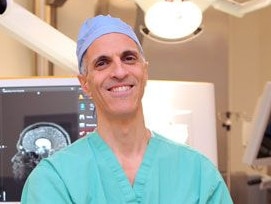
Dr Teo reportedly asked the parents of the children, a four-year-old Indian boy, and a girl, 7, from NSW’s Hunter Valley, to deposit $40,000 and $50,000 overnight in his account before operating.
Both children were diagnosed with diffuse intrinsic pontine glioma (DIPG) – a deadly and aggressive type of childhood brain cancer that neurosurgeons label inoperable and incurable.
Children who are diagnosed with DIPG are immediately considered palliative and are typically given less than a year to live.
Dr Teo argues some of these diffused (widespread) tumours can also have a focal, or central, component and in those cases he believes operating can buy time – and in some cases improve quality of life – for dying patients.
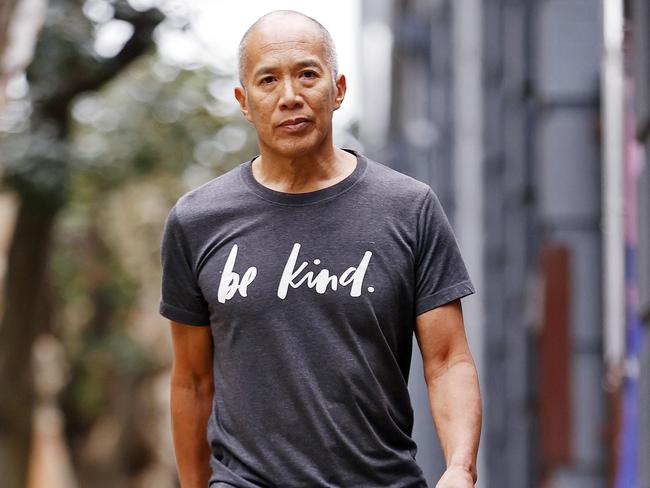
Professor Souweidane told 60 Minutes there was no clinical or research data in the world that showed there was any benefit from conducting surgery on DIPG tumours.
Rules imposed by the Medical Council of NSW since August 2021 mean Dr Teo is unable to perform high-risk procedures such as brain stem gliomas unless he has written approval from a second independent neurosurgeon with more than 20 years of specialist experience.
Dr Teo and Prof Souweidane have co-authored a paper in a peer-reviewed journal about how minimally invasive neurosurgery techniques are fundamental for the modern neurosurgeon.
‘I OWE MY LIFE TO CHARLIE’
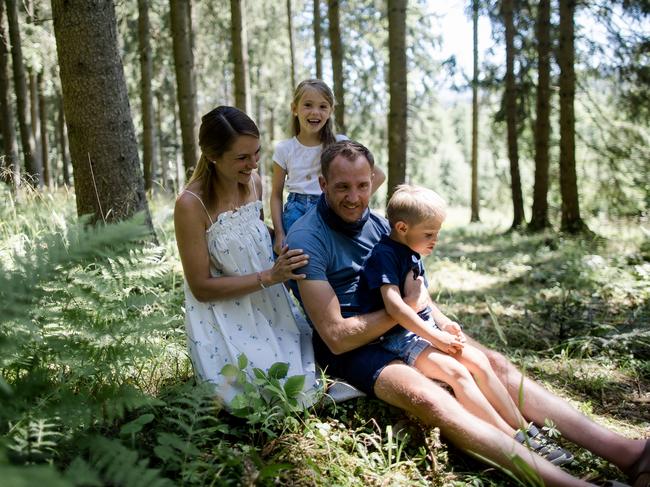
‘I OWE MY LIFE TO CHARLIE’
Michael Hall had what doctors called an “inoperable” tumour of the brainstem and was only days away from dying when he underwent surgery with Dr Charlie Teo in Germany.
“We wanted to buy time so Michael could see his children wake up each day, so we went ahead with the surgery,” Michael’s wife Stephanie said from their home in Germany.
“Charlie was able to remove 75 per cent of the tumour. Michael has some limitations due to the surgery. He has paralysis of the left side of his body and is mostly in a wheelchair.
“He also has a tracheostomy since the operation and is dependent on a lot of care. But his limitations are improving since then and he can live at home with us, and we can live an almost normal life with the support of nursing staff.”
Mrs Hall said that since the operation three years ago Michael’s tumour is stable and he does not need any treatment for it at this stage.
Mrs Hall reached out after hearing the criticism about Dr Teo operating on diffuse intrinsic pontine glioma (DIPG) tumours.
Dr Teo told The Saturday Telegraph virtually every intrinsic primary brainstem tumour is incorrectly labelled as DIPG because there is “no definitive radiological criteria and very few neurosurgeons would even contemplate having to operate on such a tumour”.
Dr Teo has developed a method for differentiating focal gliomas from diffuse gliomas, based on the high volume of brainstem tumours he has seen over the last 30 years.
“Once I’ve decided it is focal or that it has a focal component then I consider it to be operable. If it’s purely diffuse, then there’s no way I’m going to touch it,” he said.
Dr Teo said in the last five years he has come across only a handful of tumours that fit into a third category – a diffuse tumour with a focal component – and Mr Hall’s tumour was one of them.
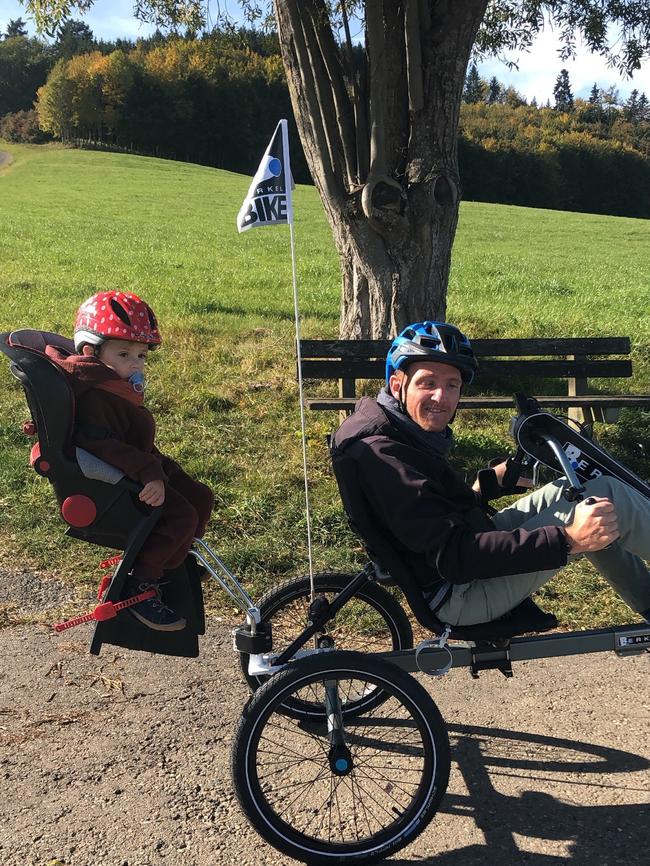
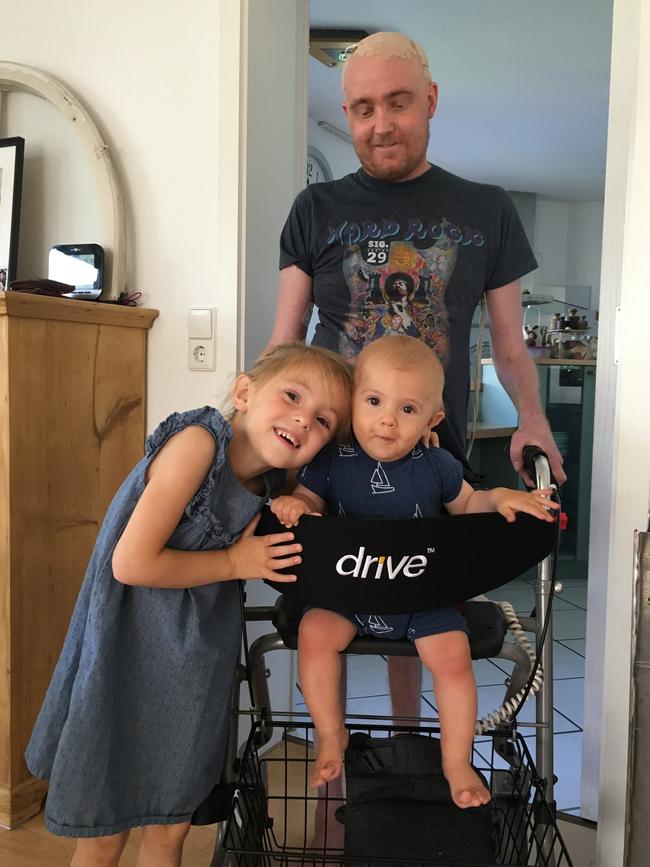
Prior to seeking out Dr Teo — and because the tumour was considered “inoperable” — Mr Hall, a civil engineer, was having radiotherapy and chemotherapy.
“At the same time, our second child Henri was born. It was a really difficult time for all of us and Michael was very unwell with the radiotherapy and chemotherapy,” Mrs Hall said.
"He had to stay in hospital for several weeks and was given a stomach tube because he could no longer swallow. Many hospital stays followed. Michael became very weak and was in the palliative ward in the summer of 2019.”
Dr Teo agreed to look at all the MRI scans and explained the risks that could come from surgery.
“A friend of Charlie’s is a neurosurgeon in Stuttgart and he organised the operation and made it possible for Charlie to operate on Michael in Stuttgart at the end of September 2019,” Mrs Hall said.
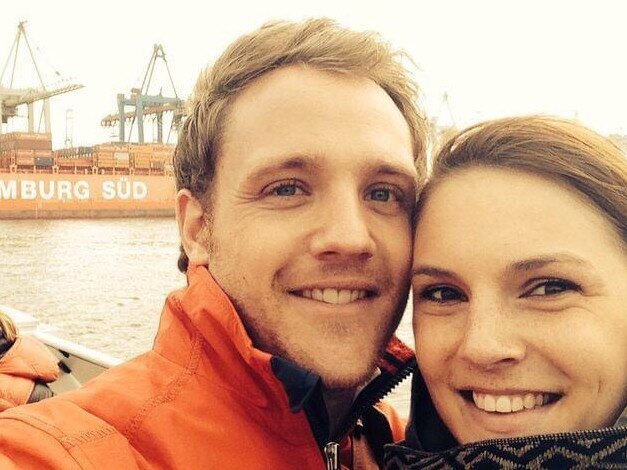
The Halls watched last week’s 60 Minutes episode (allegations and Dr Teo’s response in separate story) and said they were “stunned by the accusations”.
“We can say from our experience that he told us about all the side effects that could come from the operation. We knew that Michael could die or be in a vegetative state and many other things,” Mrs Hall said.
“He also told us that he could not and did not want to take the decision for or against the operation away from us. He said we should talk about it with our family and then make a decision. He was so honest with us.
“Michael decided to have the operation knowing that he could be worse than before. We were worried about how we would handle it if he was in a vegetative state. Thank God this situation did not happen but we were prepared for it and could have reacted to it.
“I have no words for such accusations. We spoke to so many doctors and Charlie was the most honest of all.”
— Cydonee Mardon is a former patient of Dr Charlie Teo’s




